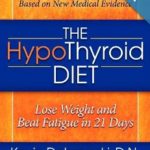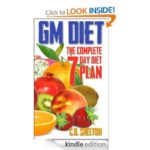This article describes how to structure and follow a PCOS diet plan in order to relieve and control the symptoms associated with PCOS.
Since the diet plan is intended to lose body fat and give more stable blood sugar levels it can also be followed by anyone seeking a better health, even though they are not suffering from PCOS.
Table of Contents
What Is PCOS?
PCOS stands for Polycystic Ovary Syndrome and is a very common hormonal disorder among women. The short description of it is that the hormones are out of balance. Up to 10% of all women between the ages of 12 and 45 suffer from this complex syndrome in varying degrees.
It is thought to be genetic, although the evidence is not conclusive. PCOS is one of the most common causes of female infertility which makes it important to cure, or at least control and relieve some of the symptoms.
Symptoms
So, what are the symptoms of PCOS? The symptoms often start to show in the teen years, and the most frequent ones are:
- Infertility. Some women can get pregnant, but not without trouble.
- Acne. This is caused by increased levels of male hormones.
- More body hair. This has the same cause as acne.
- Irregular menstruation. The periods can be both too frequent, too infrequent, and even no menstrual periods at all.
- Insulin resistance problem. This can be a very serious health issue since blood sugar levels will increase, which can cause both obesity, high cholesterol levels and diabetes.
- Depression.
The insulin resistance problem is what you can target with a good PCOS diet plan, keeping you in good health and giving you a better chance to live a happy life. Continue reading, and you will learn how to structure the perfect diet plan.

What Are The Causes?
The direct cause is the unbalanced hormone levels, but as mentioned earlier, they are thought to be the result of a genetic disease. It is not yet scientifically proven that this is the case, but most evidence are pointing towards this conclusion. PCOS can be inherited both on the father’s and mother’s side.
How Can It Be Treated?
PCOS can be treated in a number of ways, although there is no consensus as to what the optimal treatment is.
- A medical doctor can prescribe both a medicine that lowers the levels of male hormone, and also birth control pills. These can reduce both acne and excessive hair growth, as well as normalize menstruation.
- If you are trying to get pregnant, fertility medicines are used.
- Exercise and a healthy PCOS diet will help the patient lose weight and normalize the insulin resistance; two factors that are thought to directly fight the underlying causes. This is the most powerful treatment, especially since it also improves the general health of the patient.
- Stop smoking. Smoking can reinforce the symptoms and is also very unhealthy in a more general sense.
The great benefits of regular exercise and a healthy diet cannot be overstated. If you are unaccustomed to exercising, I would recommend you to start by talking long walks. Most people don’t understand just how effective long walks can be in order to lose weight, and wrongfully think they have to jog to get results. When you feel comfortable walking for an hour or more, it is time to step up the intensity of the training.
Consult your doctor and a professional trainer to set up a personalized training program and then stick to it, no matter what. Easier said than done, I know. But consistency is the key to success when it comes to losing weight and obtaining physical improvements, so do whatever you have to do in order to follow your training program. Your health depends on it.
Just as important as exercise is the food you eat. That’s why the next step is to come up with the best diet for PCOS.
How To Structure a PCOS Diet Plan
Losing weight is a very effective way to achieve normal menstruation, so a healthy diet is very important in the treatment of PCOS symptoms. In theory, it is easy to lose weight. Just eat fewer calories than you burn. Period.
In practice though, a few ground rules are helpful in order to be consistent with your diet:
- Stay away from sugar. That means no drinks or juices with added sugar. No candy or ice cream. No white bread, only wholemeal bread.
- Only eat foods that are low on fat.
- Remember to eat protein-rich foods. Muscles are built from proteins, and you want to keep the muscles and burn the fat, not the other way round. Great sources of protein are lean meat – such as chicken or pork tenderloin – tuna, egg, low-fat milk, soybeans and all sorts of nuts. Or you could choose to supplement your diet with protein powder (mixed with water or milk it becomes a shake).
- Calorie intake should mainly come from slow carbohydrates such as whole grain products, fruit, beans and other vegetables.
- Don’t eat more than you have to. Optimally you should only eat until you are 80% full. A little tip that could help is to drink a full glass of water before each meal. This will reduce the hunger and help you eat less.
- Limit the amount of alcohol you drink. Alcohol is rich in calories.
- Remember to eat a balanced diet so that you get sufficient amounts of vitamins and dietary minerals. These are vital for a good health.
If you were to follow these ground rules, and combined them with regular exercise, you would burn more calories than you would eat but still get enough proteins, vitamins and dietary minerals. This means that you would lose body fat but keep your muscles. Perfect!
You should always consult with a qualified dietician before making drastic changes in your diet, especially if you are suffering from any type of disease, such as PCOS. However, to give you an example of what a normal day in a PCOS diet plan can look like, we have made this menu:
Breakfast: Start with a full glass of water. Low-fat yogurt with muesli, and s slice of wholemeal bread with low-fat cheese and bell pepper. Finish the breakfast with a fruit.
Lunch: First, one glass of water. Tuna salad with only low-fat mayonnaise. Add beans to get more proteins. Drink low-fat milk. No bread.
Dinner: As usual, start off with a glass of water. Pork tenderloin and whole grain rice. Make a green salad; the meal will both look and taste better. If it is saturday, treat yourself with one glass of red wine.
Snacks between meals: Nuts (in reasonable amounts), a low-fat protein bar, and an occasional fruit.
As you may have noticed, this diet for PCOS is very well-balanced and not as extreme as for example the 13 day diet or the GM diet. To us, that is a key factor if you are to succeed. If it is too extreme or awkward you will likely give up after the initial excitement has cooled off, which will mean that all you efforts have been wasted.
Further Reading
If you would like to learn more about PCOS and PCOS diet recipes, we recommend reading some of these great books. There are lots of useful information in them that can help make your life easier and more enjoyable.
Thank you!



